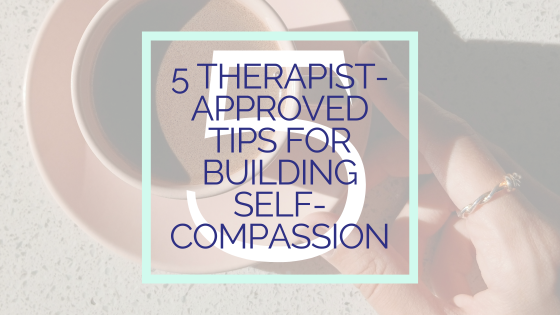As a licensed therapist, I often sit across from clients who speak to themselves in ways they would never dream of speaking to someone they love. They beat themselves up for making mistakes, hold themselves to impossible standards, and struggle to offer themselves grace during difficult moments.
If this sounds familiar, you’re not alone.
You may simply need help learning a skill many of us were never taught: self-compassion.
Self-compassion isn’t self-pity, and it’s certainly not about letting yourself off the hook or pretending everything is fine. Instead, it’s about treating yourself with the same care, understanding, and kindness you would offer a close friend in a moment of struggle. And like any skill, it can be practiced and strengthened over time.
Here are a few therapist-approved tips to help you build more self-compassion into your life—especially if you tend to be hard on yourself.
1. Notice Your Inner Critic
The first step is awareness. Start by paying attention to how you talk to yourself—especially when things go wrong. Do you call yourself names? Do you immediately blame yourself or assume you should’ve done better?
Try gently observing these thoughts instead of reacting to them. You might say, “Oh, I’m being really hard on myself right now,” or “That’s my inner critic showing up again.” Naming it helps create a little space between you and the harsh voice in your head.
2. Ask Yourself: “What Would I Say to a Friend?”
One of my favorite tools to use when teaching clients about self-compassion in session is this simple question: If someone I loved were in this situation, what would I say to them?
Chances are, you wouldn’t tell your friend they’re a failure or that they should’ve known better. You’d likely offer empathy, encouragement, or a reminder that they’re human. Now try turning that same response inward.
3. Practice Mindful Self-Validation
Self-compassion means allowing yourself to feel your emotions without minimizing them or making yourself wrong for having them. If you’re feeling sad, overwhelmed, ashamed, or disappointed, give yourself permission to feel that way.
You might say:
“It makes sense that I feel this way.”
“This is hard, and I’m doing the best I can.”
“Other people would likely feel this way too.”
This is mindful validation—acknowledging your feelings without judgment, and reminding yourself you’re not alone in them.
4. Notice the “Shoulds”
A lot of self-criticism comes from the hidden expectations we place on ourselves:
I should be further along.
I shouldn’t feel this way.
I should’ve handled that better.
When you catch a “should” creeping in, pause and ask yourself:
Where did this expectation come from?
Is this truly my value—or someone else’s?
What would it look like to show myself kindness instead?
Often, these “shoulds” are inherited beliefs, perfectionist standards, or cognitive distortions that need gentle examination and release.
5. Try Writing Yourself a Compassionate Letter
Writing can be a powerful tool for emotional healing. Set aside time to write a letter to yourself—from the perspective of someone who loves you unconditionally. A trusted friend, your future self, or even an ideal nurturing figure.
In the letter, offer understanding for whatever you’re struggling with. Validate your feelings. Encourage yourself with hope and warmth. Read the letter back anytime your inner critic gets loud.
Want more concrete ideas to get started? Try these self-compassion exercises for critical self-talk
If self-compassion doesn’t come naturally to you, you’re not alone. Many of us learned to motivate ourselves through criticism, or were taught that being hard on ourselves was somehow upstanding. But healing doesn’t happen through shame. Growth doesn’t happen through self-punishment. Real change happens when we learn to treat ourselves with the same empathy we so freely give others.
So today, take a small step. Speak to yourself gently. Pause before criticizing. Offer yourself grace, even if you’re not sure you deserve it yet.
When Self-Compassion Feels Out of Reach
And if self-compassion feels like a foreign language right now, that’s okay—you don’t have to learn it alone. Our team of Austin-based therapists can help you build a kinder relationship with yourself and strengthen your emotional well-being.
Article by Licensed Therapist, Emily Ilseng, MA, LMFT
Offering Couples Therapy in Austin & Individual Therapy for Perfectionism & Self-Compassion



































